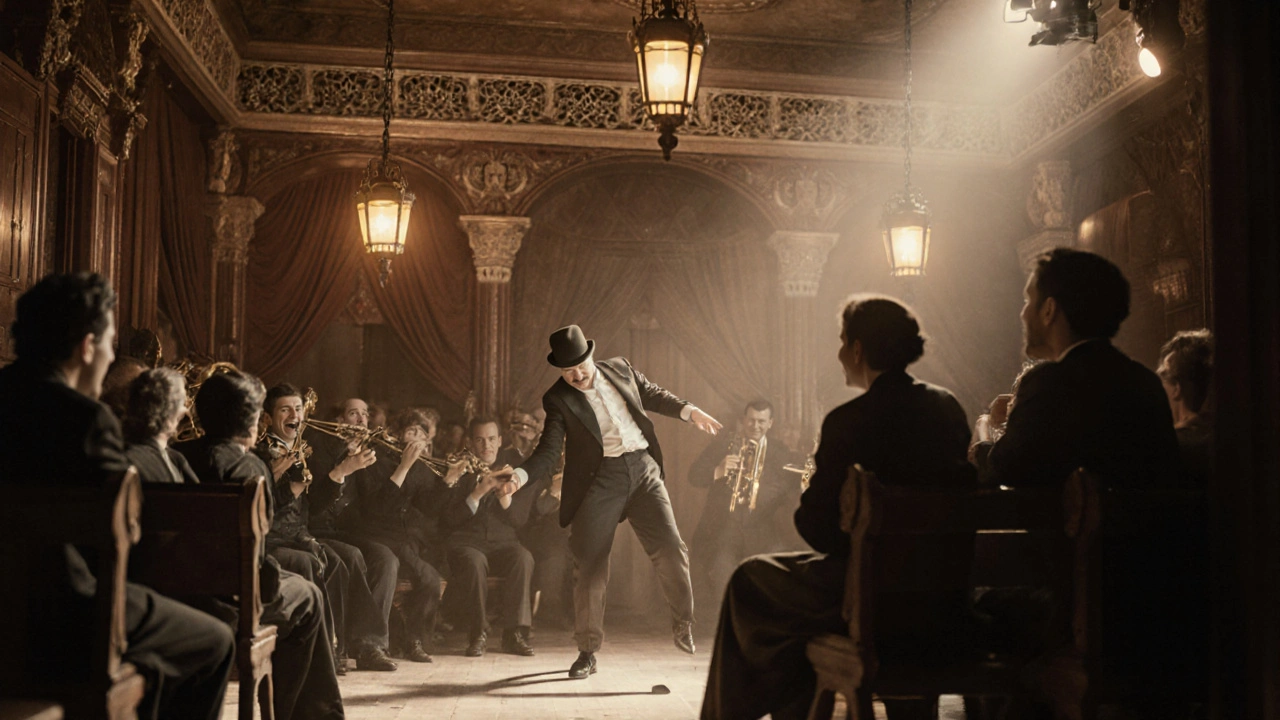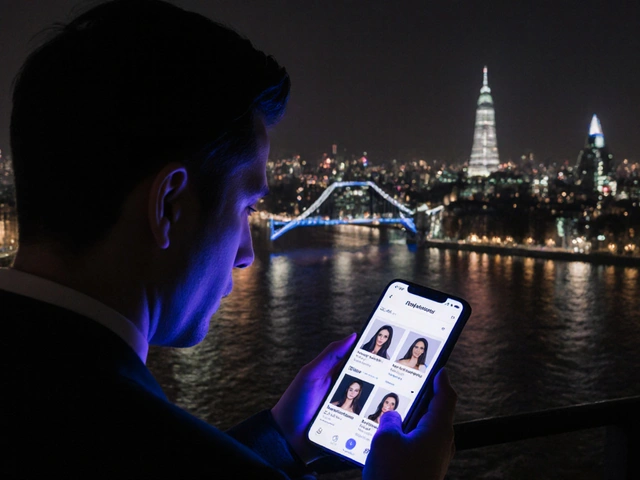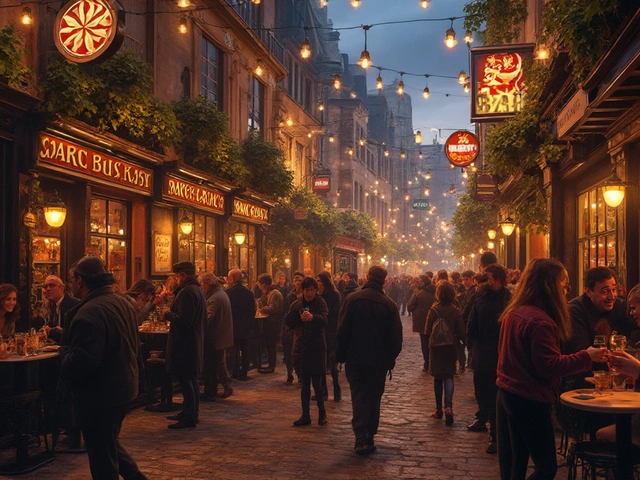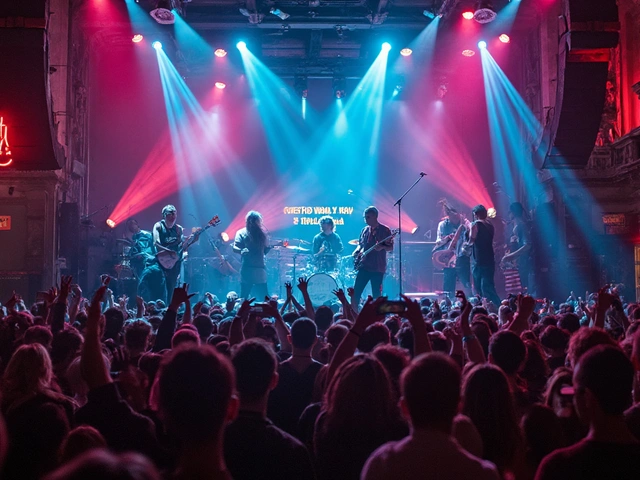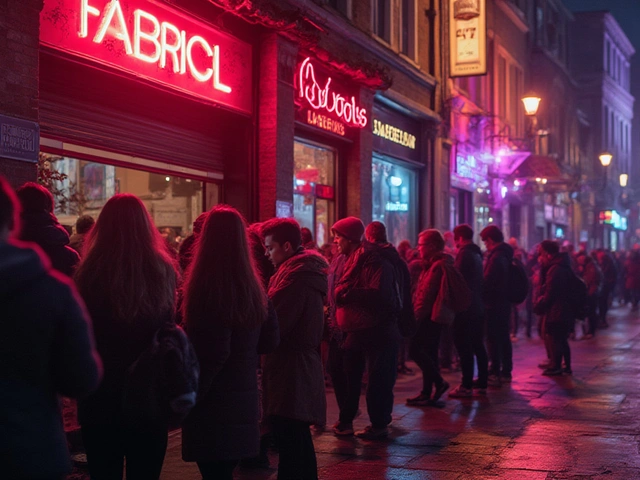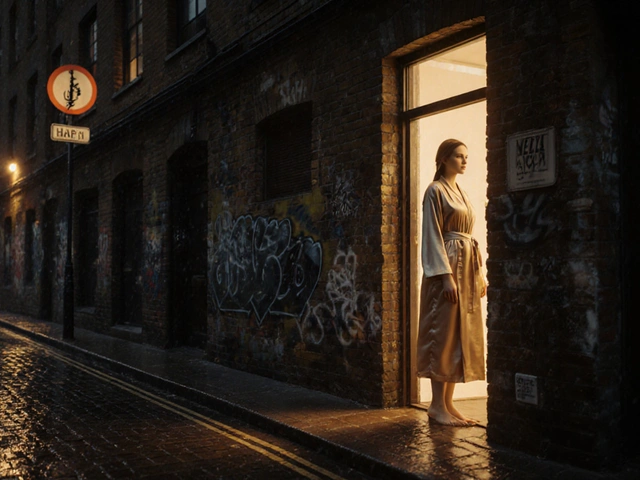When we talk about Comedy Shows performances that blend humor, storytelling, and live energy to make audiences laugh, London has been a playground for innovation from the early 20th‑century music halls to today’s streaming giants. For anyone living in or visiting the city, understanding this journey helps you pick the right venue, stream the right series, and appreciate the cultural threads that tie a 1900‑year‑old tradition to a 2025 binge‑watch session.
Vaudeville and Music Hall: The Birthplace of British Guffaws
Before Netflix, London’s comedy lived under the bright gas‑lit marquees of the London comedy shows era known as Vaudeville. The term comes from the French voix de ville, meaning "voice of the city," and it described a mixed‑bag programme of jokes, slap‑stick, songs, and novelty acts. The first real British incarnation popped up at the Music Hall on the Strand in 1865. By the 1920s, venues like the Wilton's Music Hall in Tower Hill were drawing crowds of factory workers and dockers who craved a break from the grime of the Thames.
Key characteristics of the Vaudeville era in London:
- Live, fast‑paced sketches lasting 5‑10 minutes.
- Audience participation - heckling was part of the act.
- Ticket prices low enough for the working class (often a few shillings).
Many of the jokes that survived into later TV sitcoms were first tested on these stages. Charlie Chaplin’s early slap‑stick moments, for example, were honed at the London Palladium before he went Hollywood.
The Golden Age: Radio, BBC, and Early Television
When the BBC launched its first regular comedy programme, Workers' Playtime, in 1947, it marked a shift from pure live performance to broadcast. Radio enabled jokes to travel beyond the confines of a theatre seat, reaching households in Poplar, Camden, and Kensington alike. The format evolved quickly: sketch shows like Hancock’s Half Hour (1954) used a recorded studio audience, blending the immediacy of live comedy with the reach of national radio.
Television arrived in the 1950s, and shows like Steptoe and Son and Monty Python’s Flying Circus turned the BBC into a comedy powerhouse. The iconic BBC comedy department established a pipeline that fed talent from the West End clubs straight into living‑room living rooms.
Two trends defined this period:
- Satire gained legitimacy. Shows such as That Was the Week That Was (1962) used news parody to comment on politics, a habit still evident in modern satire.
- Series length shortened. A typical episode ran 30 minutes, fitting the 8‑pm slot that families across London still recognize.
The Club Era: Soho, The Comedy Store, and the Rise of Stand‑Up
By the late 1970s, London's club scene became the new testing ground. The opening of The Comedy Store in Soho in 1979 signaled the birth of the modern stand‑up circuit. Unlike vaudeville’s ensemble sketches, stand‑up put a single comic in charge of the audience’s mood for an entire set.
London’s multicultural neighborhoods supplied fresh material. Comedians like Lenny Henry (born in Dudley but popular in Brixton) and Ben Elton (a regular at the London Palladium) drew on race, class, and the city’s own eccentricities. The club environment encouraged edgier content - profanity, political criticism, and personal storytelling - which later migrated to TV channels such as Channel 4.
Soho’s bars, from The Flamingo to Riverside Studios, still host open‑mic nights on Tuesdays. If you’re an expat looking to try your hand at a five‑minute set, these venues are the most welcoming.
TV Boom: Channel 4, BBC Sitcoms, and the Edinburgh Festival Fringe
The 1990s saw a surge of sitcoms that blended the sit‑down audience feel of the 1950s with the gritty realism of stand‑up. Channel 4 launched hits like The IT Crowd (2006‑2013) and Peep Show (2003‑2015). These shows captured the absurdity of London’s office culture and flat‑sharing life, resonating with both local commuters and overseas viewers.
Meanwhile, the Edinburgh Festival Fringe, though based in Scotland, heavily influences London’s comedy calendar. Acts that win the Daily Telegraph’s Comedy Award often book sold‑out runs at venues like the Royal Albert Hall during the summer.
Key data points:
- Channel 4’s comedy budget grew from £20 million in 1995 to over £120 million by 2022.
- BBC’s annual comedy output now exceeds 150 hours of broadcast time.
- Fringe‑originated acts contributed to a 22 % increase in ticket sales at London’s West End comedy clubs between 2010 and 2020.
The Streaming Shift: Netflix, Amazon Prime, and Global Reach
When Netflix launched its UK service in 2015, London’s comedy lovers suddenly gained on‑demand access to both classic British sitcoms and cutting‑edge stand‑up specials. Series like Sex Education (though a drama, it’s steeped in comedic tone) and stand‑up specials from James Acaster and Romesh Ranganathan proved that streaming could rival live venues for cultural impact.
Streaming changed the economics of comedy:
- Revenue moved from ticket sales to subscription fees and licensing deals.
- Global audiences meant a London‑based comedian could amass millions of viewers without leaving the capital.
- Data analytics allow platforms to recommend niche humor (e.g., dark comedy, improv) to specific user segments in Shoreditch or Westminster.
London still hosts live‑recorded specials. The 2023 Netflix original John Mulaney & the Sack Lunch filmed at the O2 Arena drew a hybrid crowd of locals and tourists, demonstrating that the city remains a prime location for high‑budget comedy productions.
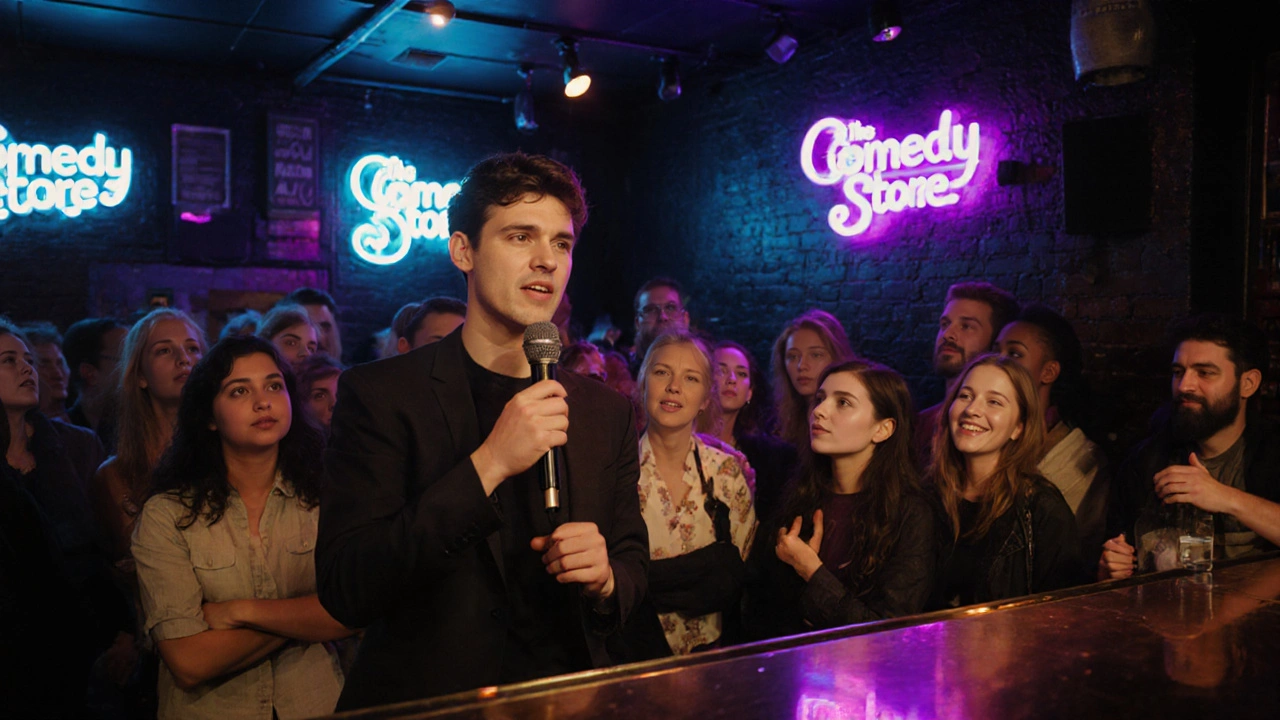
How London Consumes Comedy Today: Live, Online, and Hybrid
Today's London audience toggles between three consumption modes:
- Live venues: The Comedy Store, Soho Theatre, and the newly opened Upstairs at The Troubadour in Islington keep the tradition of immediate feedback alive.
- Broadcast TV: Channel 4 and BBC Two still air weekly comedy slots, especially during the autumn “Comedy Season.”
- Streaming: Netflix, Amazon Prime, and BBC iPlayer allow binge‑watchers in Croydon to watch a whole series in one night.
Practical tip: Purchase a London Pass that includes entry to the Royal Albert Hall comedy evenings. The pass also bundles a month of BBC iPlayer premium, giving you both a physical and digital comedy fix.
Exploring London’s Comedy Heritage: A Mini‑Itinerary
If you have a weekend free, try this route:
- Morning: Walk the historic Old Vic area and peek at the plaque commemorating the first music‑hall performance on June 9 1842.
- Afternoon: Catch a live set at The Comedy Store in Soho. Seats fill fast, so book a slot at least a week ahead.
- Evening: Stream a Netflix UK comedy special while sipping a pint at a pub in Camden. Many venues now offer free Wi‑Fi tailored for streaming.
Don’t forget to check the Time Out London comedy calendar - it lists pop‑up shows in hidden courtyards, especially during the Notting Hill Carnival week.
Future Trends: AI‑Generated Jokes and Interactive Comedy
AI is already writing jokes for YouTube channels, but London’s comedy labs are experimenting with audience‑powered scripts. The BBC Labs recently piloted an interactive comedy series where viewers vote live on punchline outcomes via the BBC iPlayer app. Early data suggest a 30 % increase in engagement compared with traditional sitcoms.
Another trend: immersive VR comedy clubs. A startup based in Shore Shoreline (yes, the Thames‑side tech hub) opened a virtual “Laugh Lounge” in 2024, letting users attend a simulated stand‑up set from any home in London. This could reshape the economics of live comedy, offering a hybrid revenue model that mixes ticket sales with digital subscriptions.
| Platform | Primary Venue | Audience Reach | Typical Length | Revenue Model |
|---|---|---|---|---|
| Vaudeville/Music Hall | Theatres (e.g., Wilton's) | Local (city‑wide) | 5‑15 min acts | Ticket sales, concessions |
| BBC/Channel 4 TV | Broadcast studios | National + overseas via satellite | 30 min episodes | Advertising, licence fee |
| Netflix Streaming | Online platform | Global (100+ M households) | 30‑60 min specials/series | Subscription fees, licensing |
Key Takeaways for London Comedy Lovers
- Know the lineage - from 19th‑century music halls to 21st‑century streaming.
- Visit live venues in Soho, Shoreditch, and Islington to feel the immediacy that still fuels new talent.
- Use a streaming subscription to catch global acts that still reference London’s unique humor.
- Watch emerging tech - AI‑crafted jokes and VR clubs - as they could reshape where you enjoy a laugh next.
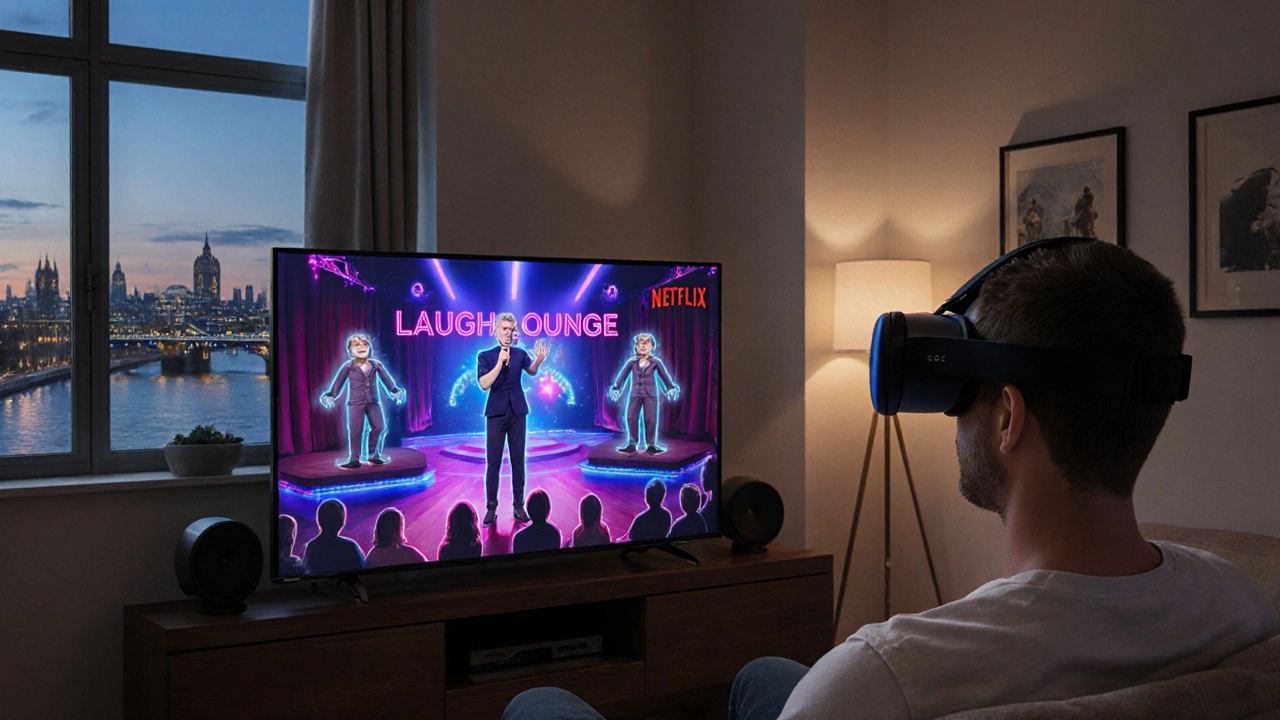
What was the first comedy venue in London?
The oldest surviving comedy venue is Wilton’s Music Hall, opened in 1859 on Tower Hill. It hosted early vaudeville acts and still runs occasional revivals.
How can I find cheap tickets for a live stand‑up show in London?
Check the official websites of The Comedy Store and Soho Theatre, sign up for their newsletters, and use apps like TodayTix. Mid‑week shows often sell out later, so you can snag discounts up to 30 %.
Which London comedy series are available on Netflix?
Netflix features British hits such as Fleabag, The IT Crowd, and stand‑up specials from James Acaster, Romesh Ranganathan, and Sara Pascoe.
Is there a comedy festival in London besides the Edinburgh Fringe?
Yes, the London Comedy Festival runs each June at venues across the city, with a focus on emerging talent and international acts.
Will AI replace human comedians in London?
AI can generate jokes, but live comedy relies on timing, audience interaction, and cultural nuance-especially the unique London slang and class jokes-that machines still struggle to master.

